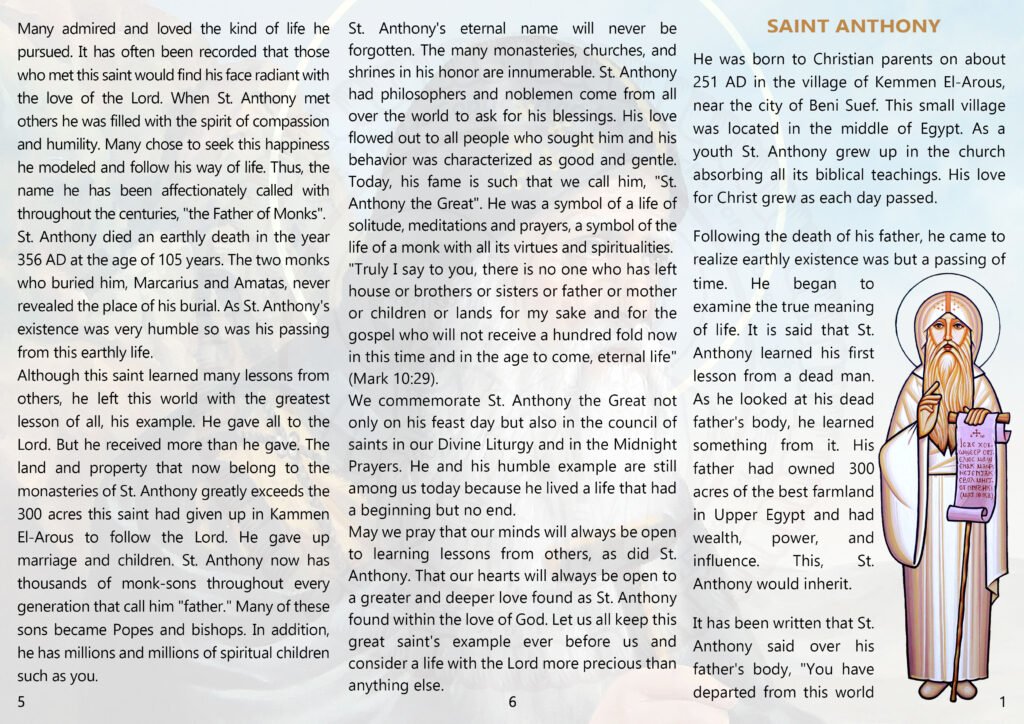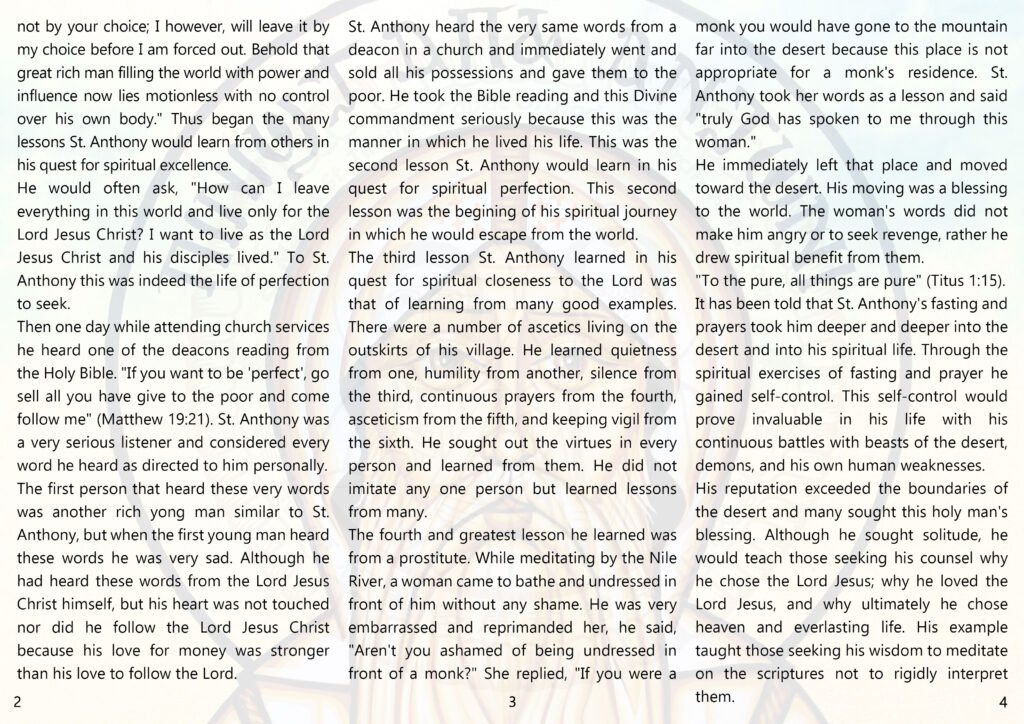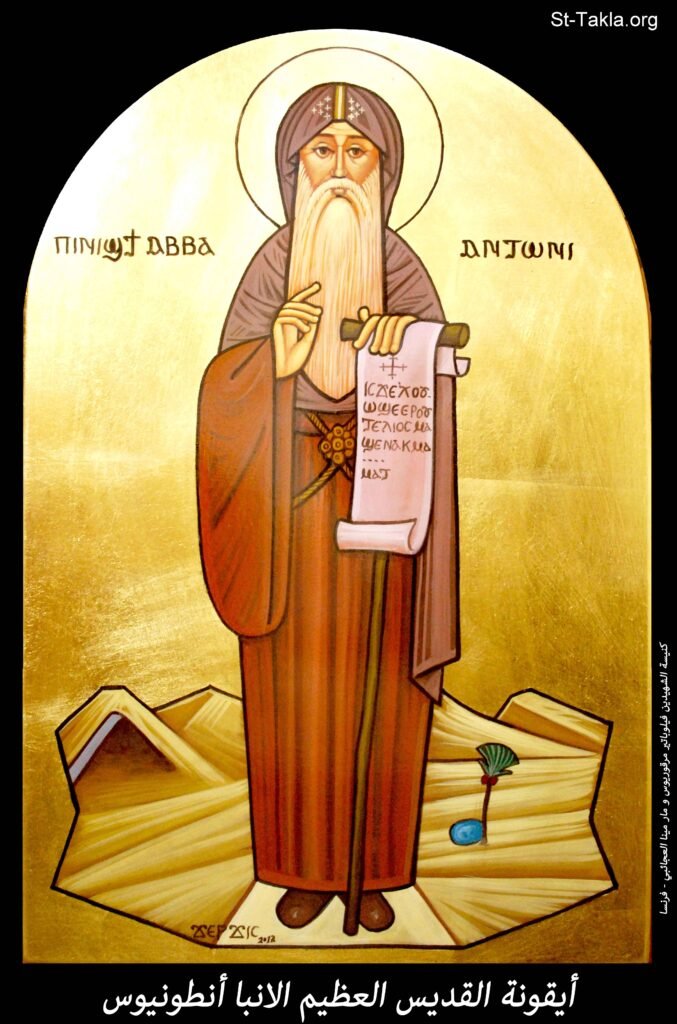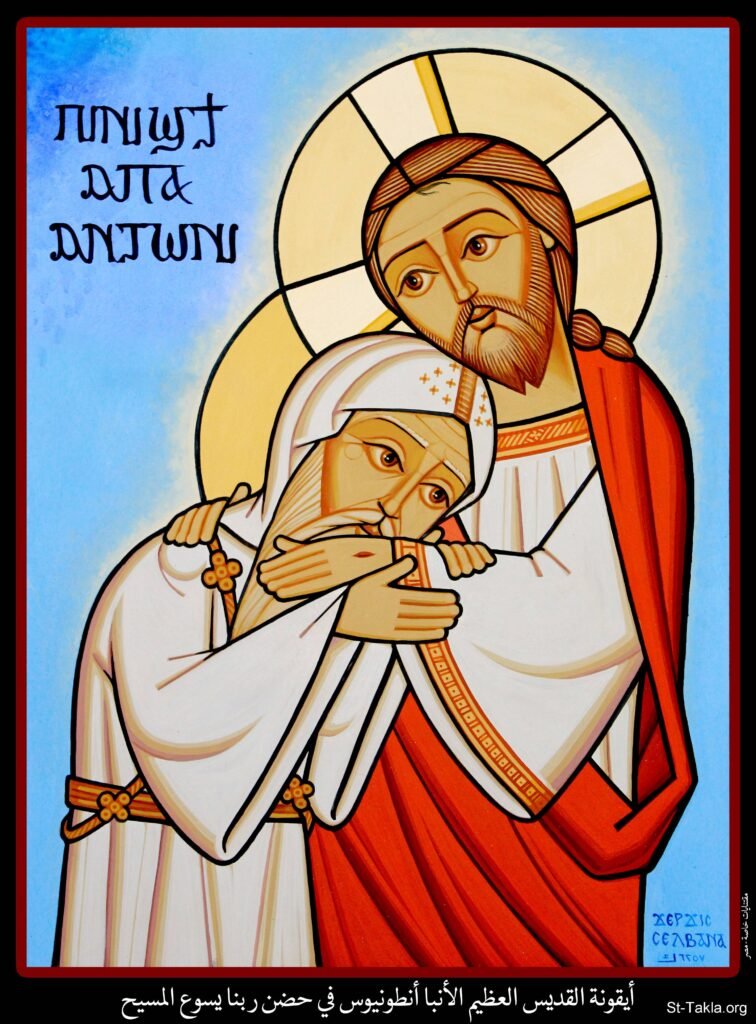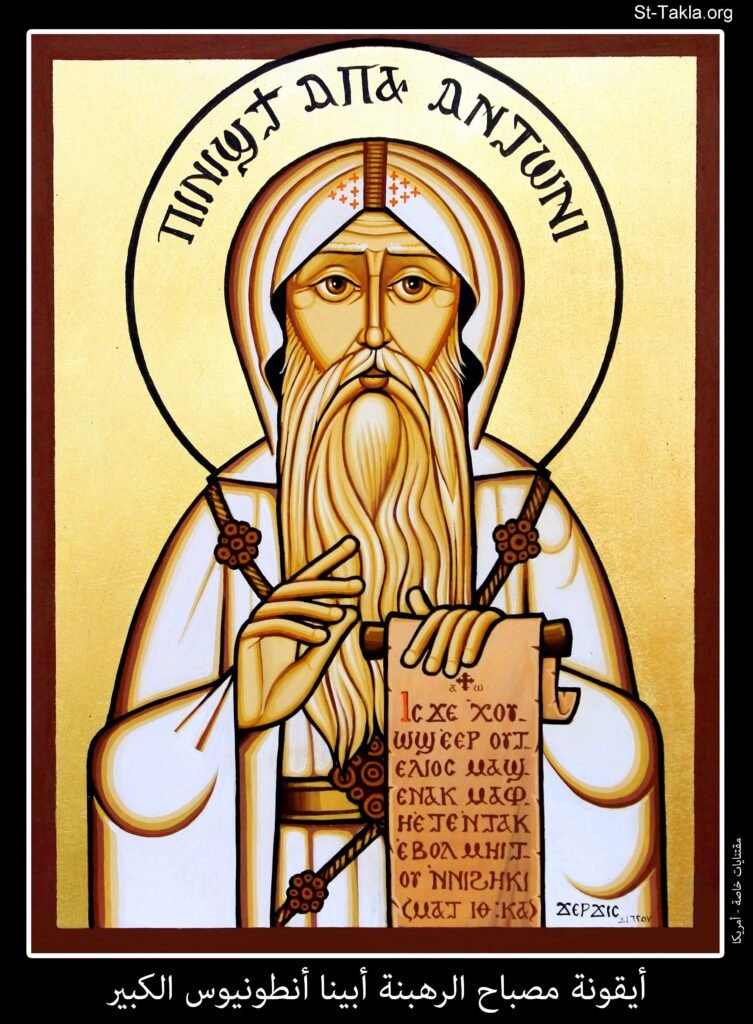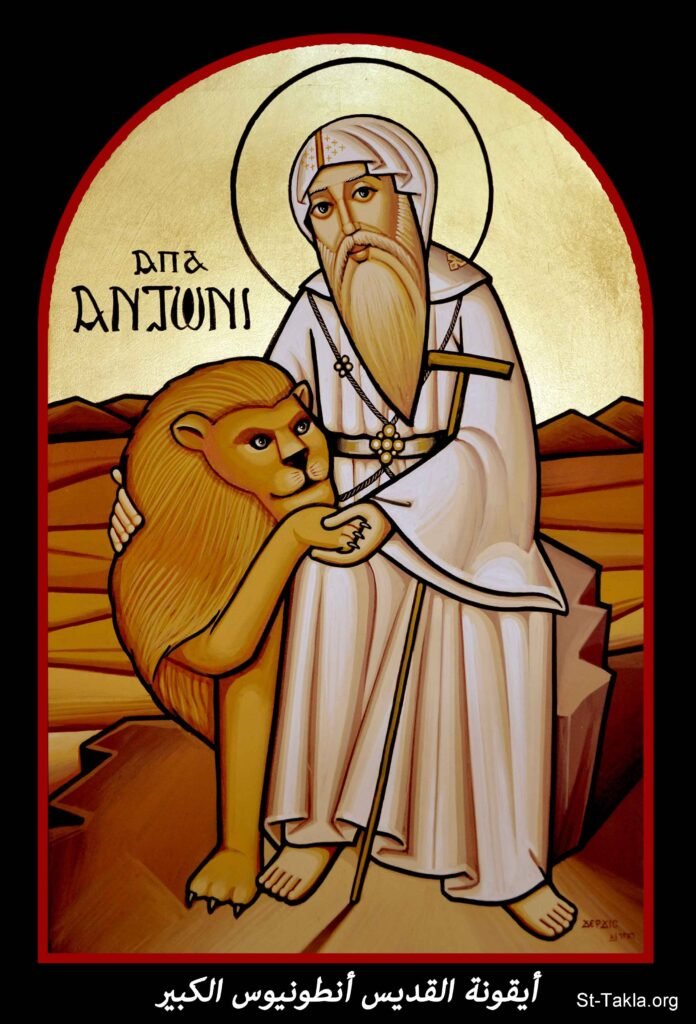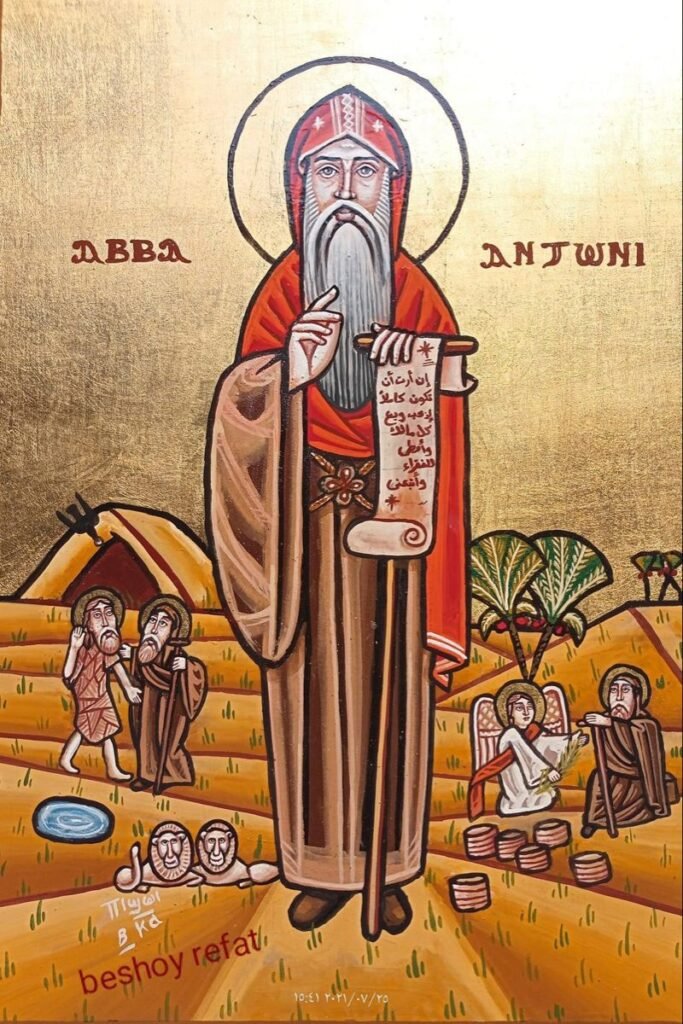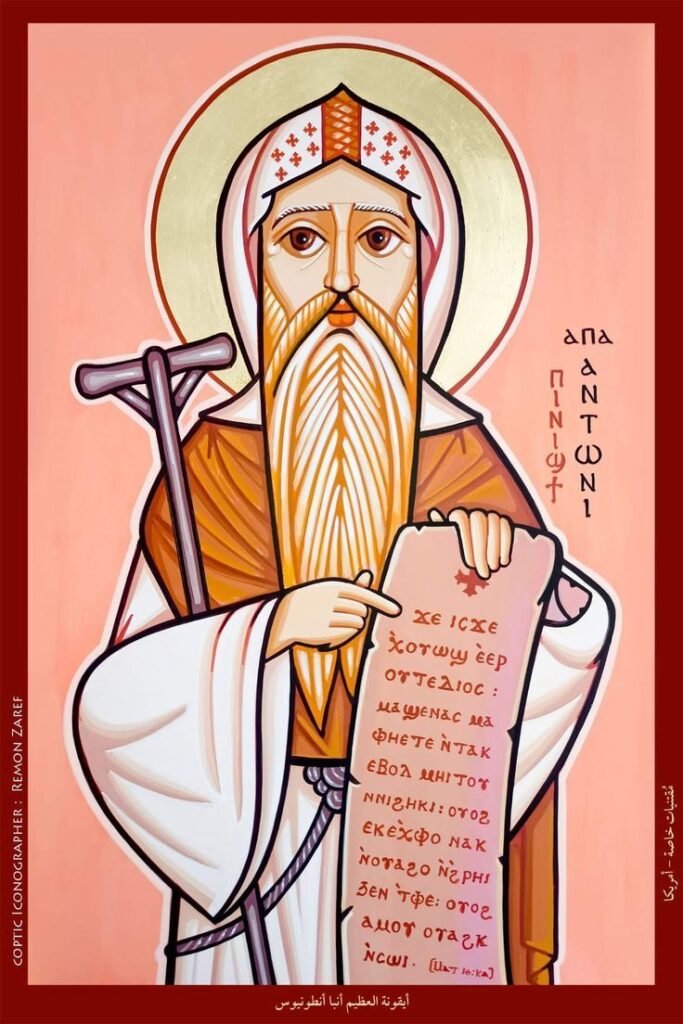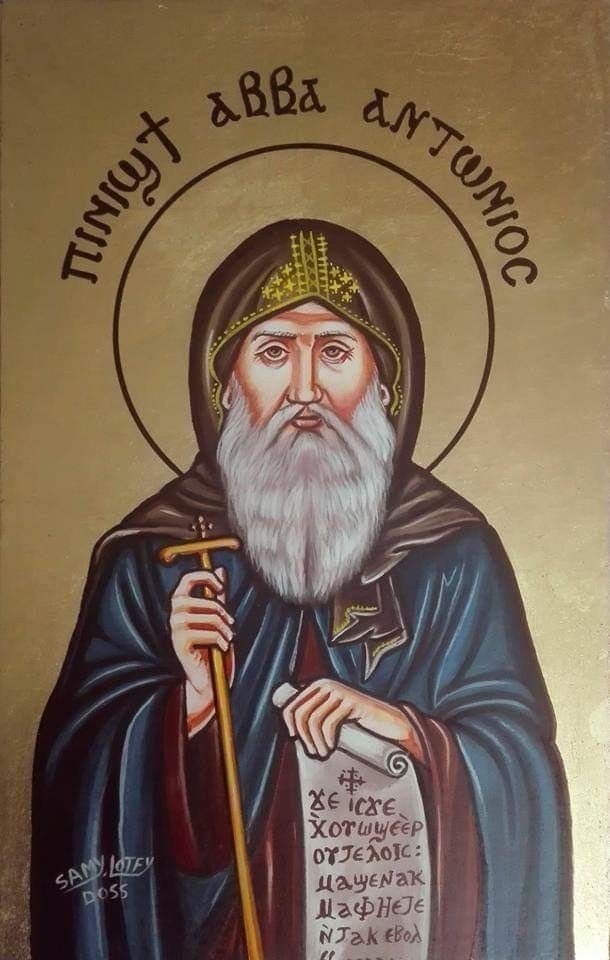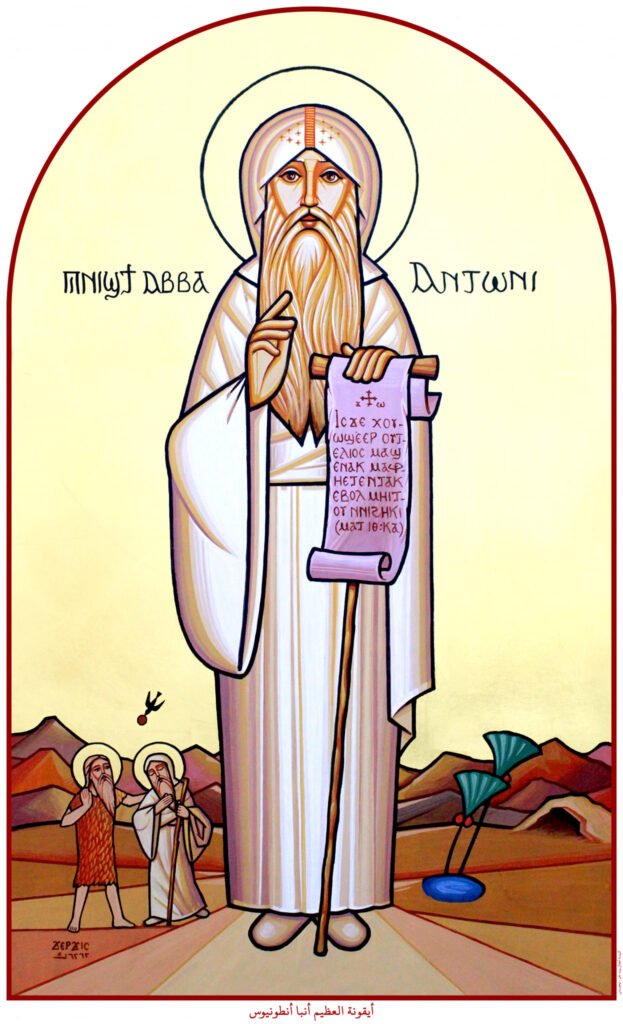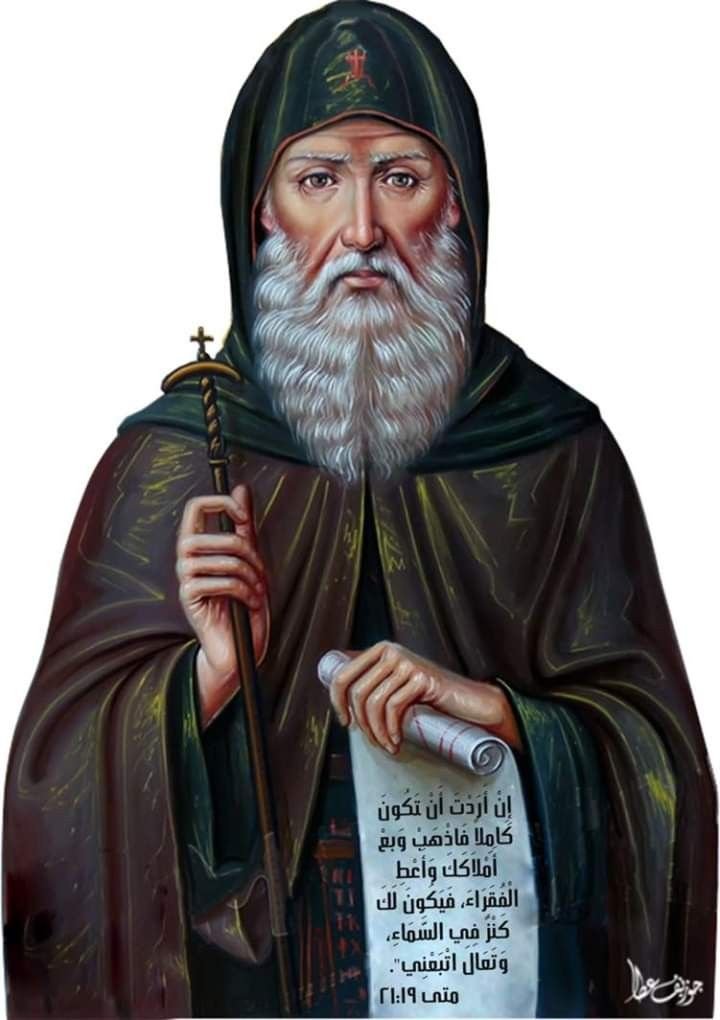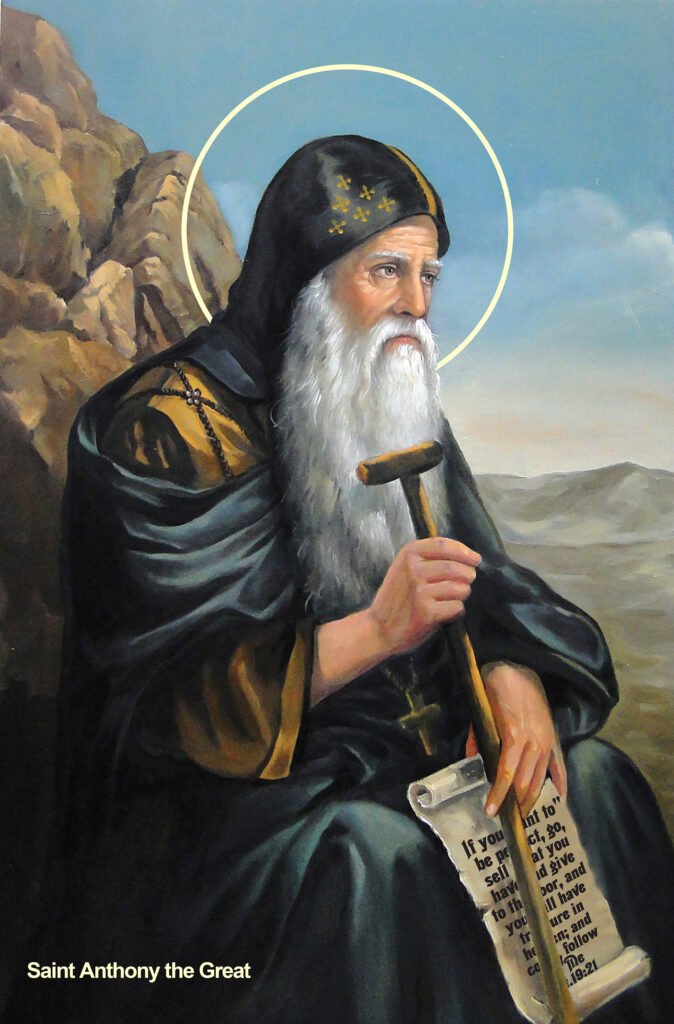He was born to Christian parents on about 251 AD in the village of Kemmen El-Arous, near the city of Beni Suef. This small village was located in the middle of Egypt. As a youth St. Anthony grew up in the church absorbing all its biblical teachings. His love for Christ grew as each day passed.
Following the death of his father, he came to realize earthly existence was but a passing of time. He began to examine the true meaning of life. It is said that St. Anthony learned his first lesson from a dead man. As he looked at his dead father’s body, he learned something from it. His father had owned 300 acres of the best farmland in Upper Egypt and had wealth, power, and influence. This, St. Anthony would inherit.
It has been written that St. Anthony said over his father’s body, “You have departed from this world not by your choice; I however, will leave it by my choice before I am forced out. Behold that great rich man filling the world with power and influence now lies motionless with no control over his own body.” Thus began the many lessons St. Anthony would learn from others in his quest for spiritual excellence.
He would often ask, “How can I leave everything in this world and live only for the Lord Jesus Christ? I want to live as the Lord Jesus Christ and his disciples lived.” To St. Anthony this was indeed the life of perfection to seek.
Then one day while attending church services he heard one of the deacons reading from the Holy Bible. “If you want to be ‘perfect’, go sell all you have give to the poor and come follow me” (Matthew 19:21). St. Anthony was a very serious listener and considered every word he heard as directed to him personally.
The first person that heard these very words was another rich yong man similar to St. Anthony, but when the first young man heard these words he was very sad. Although he had heard these words from the Lord Jesus Christ himself, but his heart was not touched nor did he follow the Lord Jesus Christ because his love for money was stronger than his love to follow the Lord.
St. Anthony heard the very same words from a deacon in a church and immediately went and sold all his possessions and gave them to the poor. He took the Bible reading and this Divine commandment seriously because this was the manner in which he lived his life. This was the second lesson St. Anthony would learn in his quest for spiritual perfection. This second lesson was the begining of his spiritual journey in which he would escape from the world.
The third lesson St. Anthony learned in his quest for spiritual closeness to the Lord was that of learning from many good examples. There were a number of ascetics living on the outskirts of his village. He learned quietness from one, humility from another, silence from the third, continuous prayers from the fourth, asceticism from the fifth, and keeping vigil from the sixth. He sought out the virtues in every person and learned from them. He did not imitate any one person but learned lessons from many.
The fourth and greatest lesson he learned was from a prostitute. While meditating by the Nile River, a woman came to bathe and undressed in front of him without any shame. He was very embarrassed and reprimanded her, he said, “Aren’t you ashamed of being undressed in front of a monk?” She replied, “If you were a monk you would have gone to the mountain far into the desert because this place is not appropriate for a monk’s residence. St. Anthony took her words as a lesson and said “truly God has spoken to me through this woman.”
He immediately left that place and moved toward the desert. His moving was a blessing to the world. The woman’s words did not make him angry or to seek revenge, rather he drew spiritual benefit from them.
“To the pure, all things are pure” (Titus 1:15).
It has been told that St. Anthony’s fasting and prayers took him deeper and deeper into the desert and into his spiritual life. Through the spiritual exercises of fasting and prayer he gained self-control. This self-control would prove invaluable in his life with his continuous battles with beasts of the desert, demons, and his own human weaknesses.
His reputation exceeded the boundaries of the desert and many sought this holy man’s blessing. Although he sought solitude, he would teach those seeking his counsel why he chose the Lord Jesus; why he loved the Lord Jesus, and why ultimately he chose heaven and everlasting life. His example taught those seeking his wisdom to meditate on the scriptures not to rigidly interpret them.
Many admired and loved the kind of life he pursued. It has often been recorded that those who met this saint would find his face radiant with the love of the Lord. When St. Anthony met others he was filled with the spirit of compassion and humility. Many chose to seek this happiness he modeled and follow his way of life. Thus, the name he has been affectionately called with throughout the centuries, “the Father of Monks”.
St. Anthony died an earthly death in the year 356 AD at the age of 105 years. The two monks who buried him, Marcarius and Amatas, never revealed the place of his burial. As St. Anthony’s existence was very humble so was his passing from this earthly life.
Although this saint learned many lessons from others, he left this world with the greatest lesson of all, his example. He gave all to the Lord. But he received more than he gave. The land and property that now belong to the monasteries of St. Anthony greatly exceeds the 300 acres this saint had given up in Kammen El-Arous to follow the Lord. He gave up marriage and children. St. Anthony now has thousands of monk-sons throughout every generation that call him “father.” Many of these sons became Popes and bishops. In addition, he has millions and millions of spiritual children such as you.
St. Anthony’s eternal name will never be forgotten. The many monasteries, churches, and shrines in his honor are innumerable. St. Anthony had philosophers and noblemen come from all over the world to ask for his blessings. His love flowed out to all people who sought him and his behavior was characterized as good and gentle. Today, his fame is such that we call him, “St. Anthony the Great”. He was a symbol of a life of solitude, meditations and prayers, a symbol of the life of a monk with all its virtues and spiritualities.
“Truly I say to you, there is no one who has left house or brothers or sisters or father or mother or children or lands for my sake and for the gospel who will not receive a hundred fold now in this time and in the age to come, eternal life” (Mark 10:29).
We commemorate St. Anthony the Great not only on his feast day but also in the council of saints in our Divine Liturgy and in the Midnight Prayers. He and his humble example are still among us today because he lived a life that had a beginning but no end.
May we pray that our minds will always be open to learning lessons from others, as did St. Anthony. That our hearts will always be open to a greater and deeper love found as St. Anthony found within the love of God. Let us all keep this great saint’s example ever before us and consider a life with the Lord more precious than anything else.
